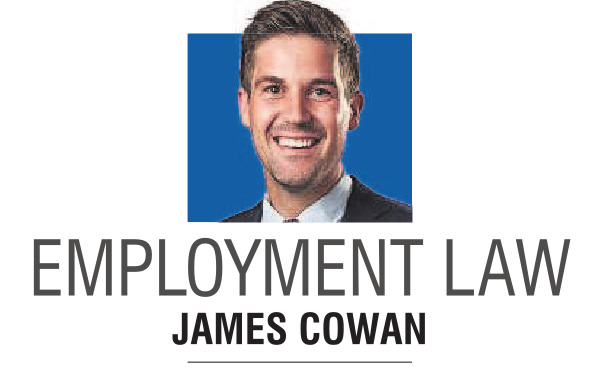
Some pundits predicted an increase in whistleblowing disclosures, and from a mixture of anecdotes, media articles, public reporting and legal cases they appear to have been right.
In June, the chief ombudsman reported a 58% increase in protected disclosures and related inquiries in 2023-24 compared with what he received in 2022-23.
The revised Act was intended to better enable the disclosure and timely investigation of serious wrongdoing in or by an organisation, and to protect people who make disclosures.

Despite new legislation, New Zealand may still be behind the curve when it comes to facilitating genuine whistleblowing. In some countries there are significant financial incentives to whistleblowing in the form of rewards which can pay a percentage of any funds recovered, particularly for disclosures about procurement fraud and tax evasion.
Bounties are said to promote positive reporting behaviour and to create a deterrent effect. New Zealand’s laws aim to protect whistleblowers, rather than reward them.
To be protected, the information must have been disclosed in accordance with the Act. A "protected disclosure" has a specific meaning and requires the discloser to believe (on reasonable grounds) there is or has been serious wrongdoing in or by the discloser’s organisation.
A discloser must be an individual who is or was formerly an employee (or equivalent), an independent contractor, a volunteer of the organisation, or someone concerned in the management of the organisation.
"Serious wrongdoing" also has a specified definition and, although it is wider than it was previously, is intended to be a high threshold. Wrongdoing is not enough, it must be about serious wrongdoing.
Anything that is a criminal offence meets the definition. Workplace bullying complaints would usually not amount to protected disclosures, but the definition includes acts which are a serious risk to the health and safety of any individual — which could capture things like serious bullying or sexual harassment in the workplace.
In respect of public sector organisations, an act by an employee which is oppressive, unlawfully discriminatory, grossly negligent, or that is gross mismanagement is also included in the definition.
Disclosures should be made in accordance with an organisation’s internal procedures, but can also be made to an appropriate authority. The Act gives examples of appropriate authorities, which are generally thematically linked to the type of concern. For example, disclosures about work-related health and safety can be made to WorkSafe, and disclosures about discrimination or racism can be made to the Human Rights Commission. Disclosures to media outlets, to the general public, or on social media are not protected.
In the employment-law sphere, a significant protection is the requirement an employer not retaliate against a discloser.
There is now a new personal grievance available to employees when their employer has retaliated or threatened to retaliate against them because the employee has made or intends to make a protected disclosure.
The protection from retaliation was recently explored by the Employment Relations Authority in Bowen v Bank of New Zealand. Ms Bowen made two complaints to her employer — the first about her colleagues’ conduct, and the second about her manager’s business conduct.
After receiving the first complaint, BNZ commenced a restructure, proposing to disestablish Ms Bowen’s role. Ms Bowen raised personal grievances.
She alleged the restructuring was motivated by retaliation for having made a protected disclosure. The Authority was satisfied the manager had direct influence in changing the restructure proposal, and that the changes were in retaliation for Ms Bowen having made the first complaint.
In respect of the second complaint, the Authority concluded the decision to recommence the proposed restructure was not retaliatory. Ultimately, the Authority concluded Ms Bowen was unjustifiably dismissed as the restructure had no credible commercial basis and BNZ’s procedure was deficient.
Employers should put in place a policy and procedures about whistleblowing. It is mandatory for public sector organisations to adopt and publish appropriate internal procedures about how the organisation receives and deals with information about serious wrongdoing.
The Act itself might actually be an example of the plain language user-friendly legislation the Parliamentary Counsel Office strives for. Section 7 summarises the protections the discloser is entitled to if they make a protected disclosure. Section 13 then gives some guidance about what the receiver of a protected disclosure should do. Reading those two sections should give employers enough to go on to prepare the basics of a whistleblowing policy and procedure documents.
The other thing all employers should think about is the reporting options they make available for their staff to share concerns. This is again a requirement in public sector organisations.
While a policy might direct any whistleblowing disclosures should be made in writing to a specified position in the organisation, it is going to be most effective if there are options given, including those which promote the possibility of keeping their identity confidential.
Both the upward trend in the volume of whistleblowing and also in the number of cases being taken by aggrieved disclosers against their employers is likely to continue.
— James Cowan is a senior associate at Anderson Lloyd, specialising in employment law. The opinions expressed in this article are those of the writer and do not purport to be specific legal or professional advice.













